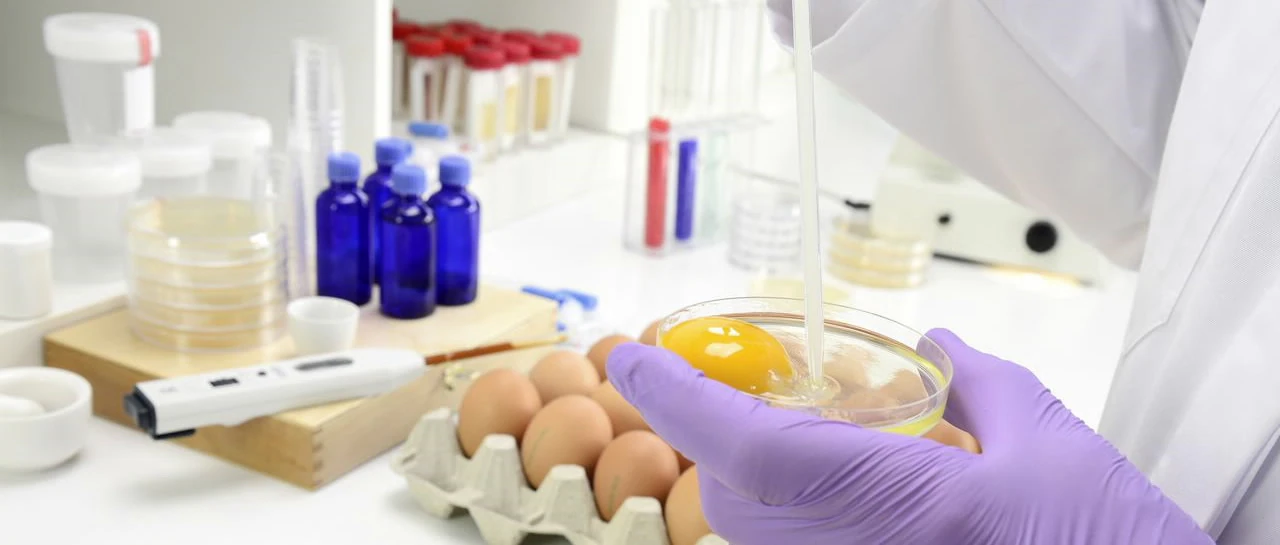ISO 35242 Sulfite Detection in Dried Fruits
The detection of sulfites in dried fruits is critical for ensuring food safety and compliance with international standards. Sulfites are commonly added to dried fruits to prevent spoilage, enhance color retention, and extend shelf life. However, excessive levels can pose health risks, especially for individuals sensitive to sulfites.
ISO 35242 provides a standardized method for the determination of sulfites in various foodstuffs, including dried fruits. This service ensures accurate detection and quantification of sulfites, thereby supporting regulatory compliance and safeguarding consumer health. The test is particularly important as sulfite levels can vary significantly depending on the type of fruit, processing methods, storage conditions, and handling practices.
The process begins with proper specimen preparation. Samples are typically ground into a fine powder to ensure even distribution for accurate testing. Afterward, an appropriate extraction method is employed to release the sulfites from the dried fruits. This may involve the use of water or acidic solutions, followed by filtration and analysis.
The analytical technique used in this service is gas chromatography with sulfur-selective detection (GC-S). GC-S offers high sensitivity and selectivity for detecting trace levels of sulfites, making it ideal for this application. The method involves the injection of the extracted sample into a capillary column where the components are separated based on their boiling points.
The separation process allows for precise identification and quantification of sulfites. The sulfur-selective detection system ensures that only compounds containing sulfur are detected, providing accurate results even in complex matrices like dried fruits. This method is sensitive enough to detect very low levels of sulfites, ensuring that the final product meets stringent regulatory requirements.
The acceptance criteria for this test are based on international standards such as ISO 35242 and local regulations. Compliance with these standards ensures consistent and reliable results across different laboratories. The acceptable limit for sulfite content in dried fruits is typically set at a level that balances efficacy and safety, often around 10 ppm (parts per million).
Our laboratory strictly adheres to the ISO 35242 method during testing. This includes using certified reference materials, maintaining calibration of equipment, and employing trained personnel who are knowledgeable about the subtleties of sulfite detection in dried fruits.
The results from this test are reported promptly and comprehensively. A detailed report is provided that includes the concentration of sulfites detected, any deviations from expected levels, and recommendations for corrective actions if necessary. This information is invaluable for quality managers, compliance officers, R&D engineers, and procurement teams who rely on accurate data to make informed decisions.
Quality and Reliability Assurance
- Maintaining strict adherence to ISO 35242 standards
- Using certified reference materials for accuracy
- Regular calibration of analytical instruments
- Training of personnel in sulfite detection techniques
- Implementing quality control measures at every step of the process
Our laboratory is committed to delivering accurate and reliable results. By adhering to international standards, using certified materials, and training our staff, we ensure that each test conducted meets the highest quality and reliability benchmarks.
Customer Impact and Satisfaction
The impact of this service extends beyond regulatory compliance; it also enhances customer satisfaction by providing peace of mind regarding product safety. Quality managers and R&D engineers can use the results from our sulfite detection tests to ensure that their products meet or exceed safety standards, thereby building trust with consumers.
For compliance officers, accurate testing ensures adherence to local and international regulations, avoiding potential fines and legal issues. This service helps maintain a positive reputation for the company while ensuring product quality and safety.
Competitive Advantage and Market Impact
The ability to accurately detect sulfites in dried fruits gives companies a competitive edge by ensuring they meet regulatory requirements and consumer expectations. This service helps maintain compliance with international standards, which is crucial for export markets where regulatory differences can be significant.
By providing reliable testing results, we help our clients stay ahead of potential risks and challenges, allowing them to focus on innovation and growth rather than compliance issues. This commitment to quality enhances the overall market reputation of companies that use our services.





